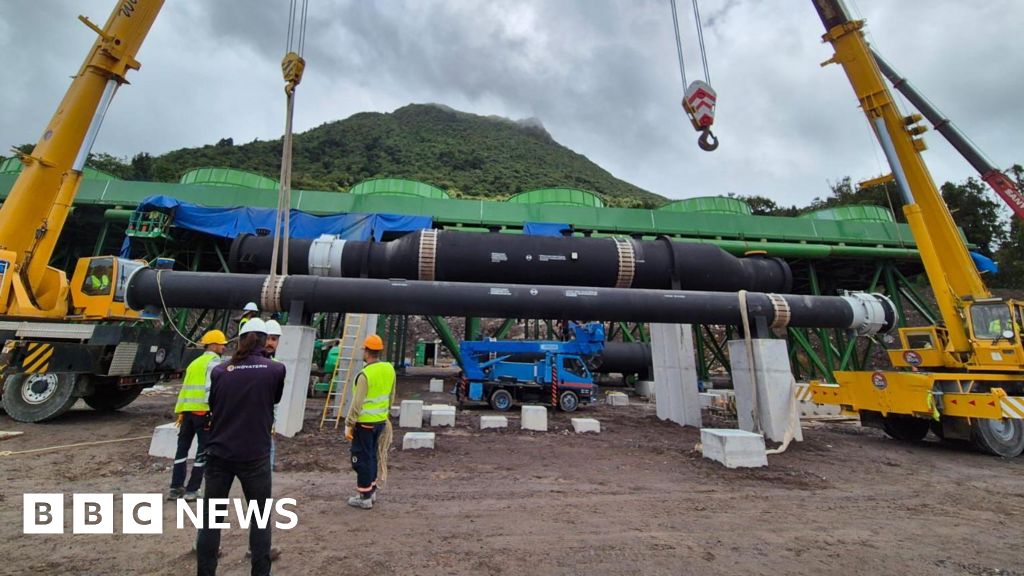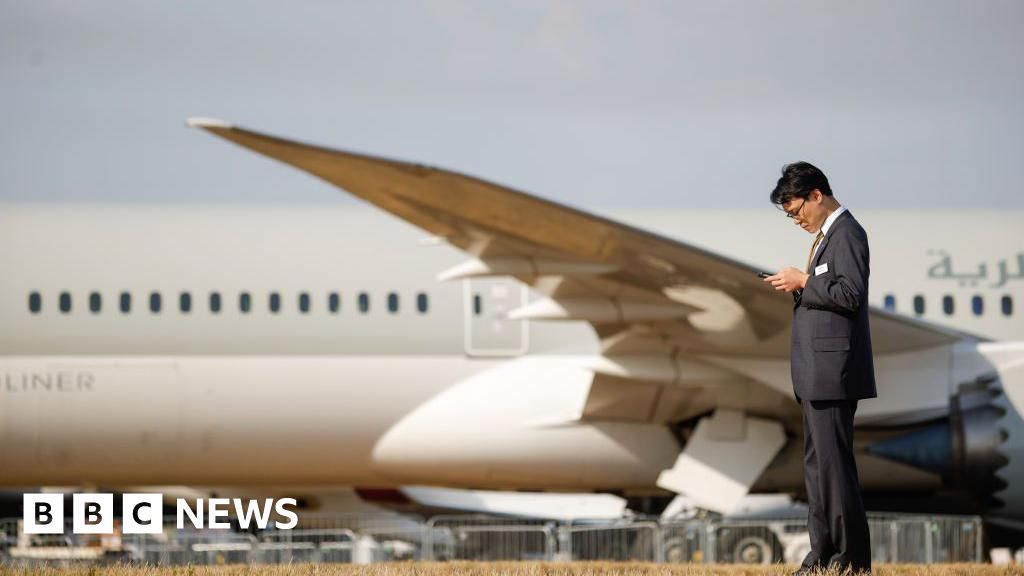ARTICLE AD BOX
Image source, Getty Images
The war in Ukraine will "severely set back" the global economic recovery with the UK hit harder than most, the International Monetary Fund has said.
The conflict is driving up prices for food and fuel which the international body expects to slow growth globally.
It has cut its global forecast and also downgraded its outlook for the UK.
This means the UK will no longer be the fastest growing economy in the G7 group of leading Western nations, and will be the slowest in 2023, it says.
The body says that UK growth will slow as price pressures lead households to cut spending, while rising interest rates are expected to "cool investment".
The UK's economy is now predicted to grow by 3.7% this year, down from the previous forecast of 4.7% made in January.
However, next year, the UK is expected to have the slowest growth in the G7 and across Europe's main economies, at just 1.2%, a near halving from the 2.3% expected previously. The 2023 UK figure is the slowest apart from heavily-sanctioned Russia in the wider G20 grouping, which includes nations such as China and India.
'Major shock'
The IMF works with its 189 member countries to try to stabilise the global economy, including issuing short-term loans and assistance to countries who are struggling.
it said inflation was now a "clear and present danger" in many countries and the situation has added to supply strains from the coronavirus pandemic.
"In the matter of a few weeks, the world has yet again experienced a major, transformative shock," IMF director of research Pierre-Olivier Gourinchas wrote in the organisation's 2022 World Economic Outlook.
"Just as a durable recovery from the pandemic-induced global economic collapse appeared in sight, the war has created the very real prospect that a large part of the recent gains will be erased."
The organisation said it expected global growth of just 3.6% this year, down nearly a percentage point from its forecast before the war.
The World Bank also said it was lowering its growth forecast from 4.1% to 3.2%.
The conflict has already devastated the economies of Ukraine and Russia, which the West cut off from key trade and financial networks with sanctions following the invasion.
Ukraine is facing a severe contraction of 35% or more this year, while Russia's economy is expected to shrink by 8.5%, the IMF said.
But with Russia a major energy producer and key supplier of staples such as wheat and corn alongside Ukraine, the consequences will ripple far beyond their borders, the IMF warned.
There have been two acute shocks to the world economy in quick succession - the pandemic and the Ukraine war.
The latter is building on the problems created by the former, tripping up what had been a healthy recovery, and sending prices rising at an even faster rate.
Food and energy prices were already being hiked by the supply bottlenecks after the pandemic, before one of the world's biggest energy suppliers invaded one of the world's biggest food exporter.
But now there are new bottlenecks emerging from the stringent Covid lockdowns in some regions of China.
Rising prices risk social stability in poorer countries, dependent on food imports.
Fears about inflation becoming entrenched are leading the world's central bankers to raise interest rates. In turn that is raising the cost of borrowing for the record debts many nations racked up during the pandemic.
So all this requires some skill and cooperation among the old and new financial powerhouses of the world. But that has been another commodity in short supply in recent times.
"The economic effects of the war are spreading far and wide - like seismic waves that emanate from the epicenter of an earthquake," it said.
In Germany, where the economy is especially closely entwined, the war is likely to lower growth by 1.7 percentage points, it said.
Even in countries with little direct trade with Russia and Ukraine, households will feel the effects of the war, as central banks respond to the more rapid inflation by raising interest rates, making borrowing more expensive, the IMF said.
In the US, for example, the organisation lowered its forecast for growth in 2022 by 0.3 percentage points to 3.7%, citing the prospect of more aggressive interest rate rises.
Image source, Getty Images
Image caption,Ukraine and Russia accounted for nearly 30% of the world's wheat
Overall, inflation pressures are significantly worse than they were when the IMF issued its previous forecast in January.
It now predicts inflation in "advanced economies" will hit 5.7% this year, while it is likely to reach 8.7% in emerging markets.
UK inflation is expected to be 5.3% next year - the highest in the G7, and higher than all EU members, and only exceeded in the G20 by crisis-ridden Argentina, Turkey and Russia.
"Inflation has become a clear and present danger for many countries," Mr Gourinchas wrote in a blog.
A few countries, such as oil exporters, are benefiting. The IMF expects growth in Saudi Arabia, for example, to be stronger than it did in January.
But the risks are not purely economic, the IMF added.
It said the war had also created a refugee crisis and aggravated political tensions, risking a "more permanent fragmentation of the world economy into geopolitical blocks with distinct technology standards, cross-border payment systems, and reserve currencies".
"Such a 'tectonic shift' would cause long-run efficiency losses, increase volatility and represent a major challenge to the rules-based framework that has governed international and economic relations for the last 75 years," the IMF said.

 3 years ago
56
3 years ago
56








 English (US) ·
English (US) ·